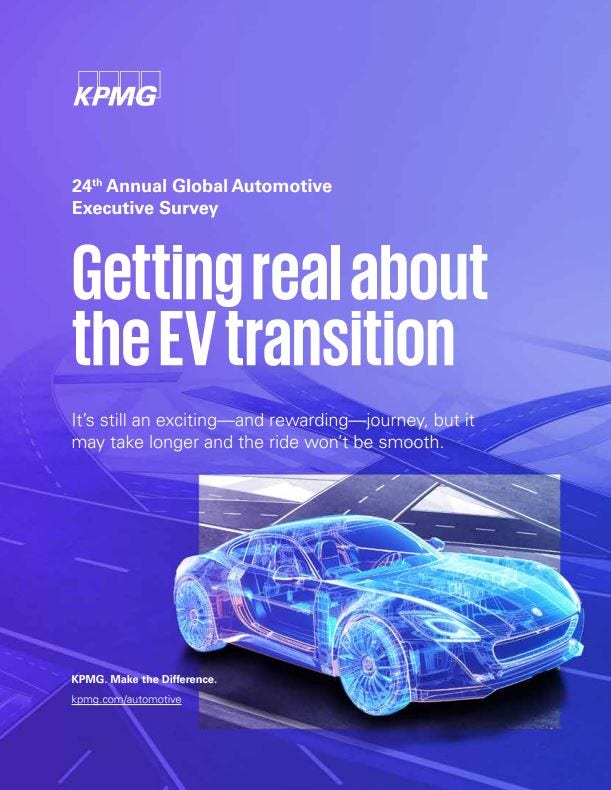Our 24th Annual KPMG Global Automotive Executive Survey comes at a pivotal moment for automakers. The business opportunities have never seemed greater, driven by advances in electric powertrains, self-driving technology, and the promise of a more magical customer experience in the vehicle. In the factory, the showroom, and on e-commerce sites, AI and other technologies are changing how cars are made, sold, and serviced.
Main findings from the report
Less confidence in profitable growth
Slower growth, higher costs. Around the world, auto executives are less confident that the industry will achieve more profitable growth over the next five years due largely to concerns over the global economy and rising costs.
Executives have a more mature view of the EV transition
Three years ago, when we asked how much share of annual sales EVs might capture in 2030, the answers ranged from 20 percent to 80 percent. Now the range of estimates has narrowed, a sign of greater realism. Executives are less optimistic this year than last about how soon EVs can reach cost parity with conventional cars.
Customer experience is a key differentiator
While performance remains the most important selling point, a seamless and hassle-free customer experience has moved up to second place. The emphasis on a smooth customer experience extends from buying the car to having seamless operating software in it, but the latter is a challenge for manufacturers. The car’s hardware is usually reliable, the software less so.
Just in case is overtaking just in time
After the disruptions of the past few years the new norm in supply chain management is becoming “just in case”, rather than “just in time”. Companies are pursuing a wide range of strategies to build resilience and things are far better than two years ago. Still, there is a high level of concern about the continuity of supply for many commodities and components over the next five years.
The technology challenges grow more complex
In the latest survey, automakers indicated that they feel less prepared than the previous year for advanced technologies, such as artificial intelligence, digital twins, and advanced robotics. The change is likely associated with the rapid advances in artificial intelligence, particularly generative AI, which is expected to bring automation to white-collar jobs.
About the KPMG Global Automotive Executive Survey
KPMG conducted a survey of 1,041 executives across the automotive and adjacent industries in October 2023. Almost a quarter were CEOs and another quarter were C-level executives. The reminder were heads of department and business units or functional managers. Ten percent worked in OEMs, 7 percent in suppliers and 9 percent in dealerships. The rest worked in car related financial services, in automotive technologies, and in the provision of charging infrastructure.
24th Annual Global Automotive Executive Survey
Our 24th annual survey examines in detail how executive sentiment is changing and the concerns and challenges that make global automotive leaders more cautious.






